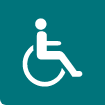We use cookies to improve your experience. By accepting you agree to our cookie policy

There are lots of different ways that living with CRPS can affect the lives of children and teenagers.
We know that CRPS can make it difficult for you to sleep, take part in sports, concentrate, attend school and socialise with your family and friends. All of these problems as well as the CRPS symptoms can have an impact on your mental health, depression and anxiety.
Chronic pain also often disrupts young people’s school life. We know that living with chronic pain can make attending school difficult, with young people missing many school days. One US based study found that young people with chronic pain that is not related to a medical condition missed almost nine school days over 3 months, resulting in greater absences than young people with arthritis and pain free young people [5].
Even if these young people can attend school, experiencing constant pain can make it difficult to concentrate and take part in activities. Missing out on school activities can disrupt learning and also make it difficult to make new friends or keep up with existing friends.
Living with chronic pain can also affect young people’s sense of who they are and what makes them unique. We call this process forming personal identity. Forming personal identity is tricky for any young person, but can be particularly challenging for young people who need to find a sense of who they are despite living with chronic pain [6]. For some young people, their pain becomes part of their sense of who they are, so they see themselves as teenagers who live with chronic pain. Other young people are keen to think about their pain as separate from their sense of who they are. So, they see themselves as people who love dancing and chatting with friends but who just happen to live with chronic pain.
One of the biggest problems faced by young people with chronic pain is that pain is often invisible to others. If you break your leg, you might have your leg in a cast. This cast makes it easy for people to see your pain, and it is a clear sign to be careful around your leg. It also lets other people know to be patient with you, since you would not be up and running around for the next few weeks. But what happens when pain is ongoing and there is no obvious cause or no visible sign, maybe “just” a painful back that is better some days than others? So, one day you can make it into school, but the next day you cannot, because it is too painful to get out of bed.
Friends, family, and teachers might find it really tricky to understand how you can experience ongoing pain when they cannot see what is causing the pain or how pain levels can change very quickly from day to day. Friends might find it difficult to understand why you sometimes need to cancel plans at the last minute when you feel poorly. If this happens frequently, your friends could think that you do not want to hang out with them anymore, and no longer invite you to meet up. Issues like this make it harder for young people with chronic pain to maintain friendships.
We use cookies to improve your experience. By accepting you agree to our cookie policy
 £
£